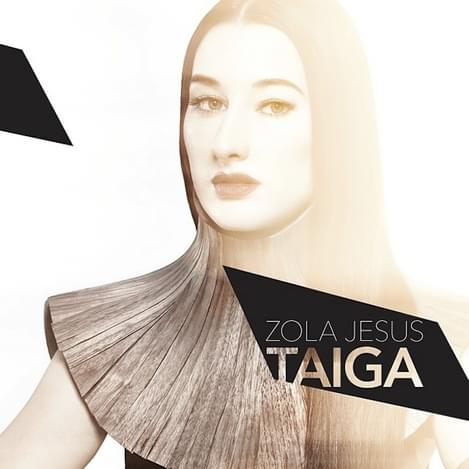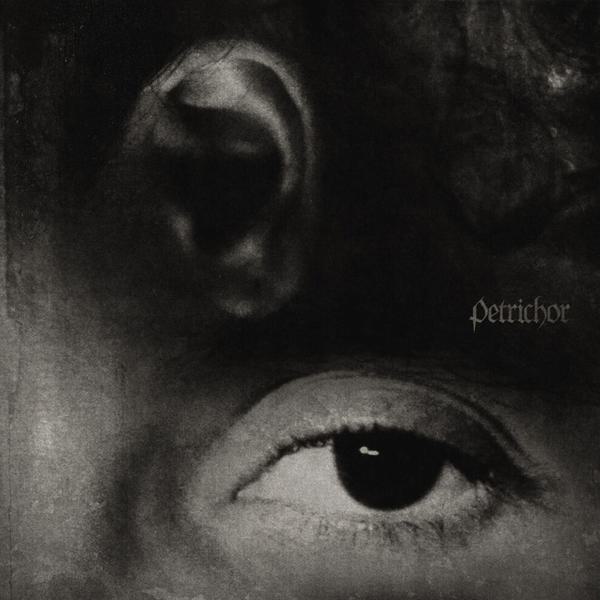Zola Jesus - Taiga
"Taiga"

From the off, Zola Jesus’ fourth full-length album, her first on Mute Records, explicitly harks back to the wintry woodlands of Danilova’s youth. The album’s title, Taiga, takes its meaning from the boreal forests spanning Russia and Canada, which extend south to her home state of Wisconsin. The opening title track, with its echoing chants, monolithic horns and a beat that switches between subterranean thrum and snapping, snarling breakbeats, presents Zola Jesus as wistful recollector. “Do you wish/You could go back to it all?” she wonders, as a garden of memory springs up around her ears.
Despite the thematic circling back to Danilova’s past, in a wider sense there’s a noticeable evolution at play on Taiga. If Zola Jesus’ journey through high watermark Stridulum II and its follow up Conatus has been a gradual emergence from the shadows through clearer production and increasingly open songwriting, then this album represents her biggest, brashest step into the light yet. To describe Taiga as Danilova’s ‘pop’ record isn’t to suggest she’s suddenly turned a luminous shade of Charli XCX – her cavernous soundscapes and soul-scraping lyrics ensure these songs still find a comfier home in the left field than the middle of the road. Still, these are her brassiest and most direct recordings to date. The propulsive horns – a recurring theme throughout – and insistent beats on "Hunger" bring her the closest she’s come to penning a proper dancefloor-filler, while first single "Dangerous Days" pairs nigh-on euphoric melodies with a startling emotional nakedness (“Then I just lay here frozen, curious”). "Lawless", meanwhile, packs a cracking sing-along chorus, showcasing Danilova’s voice at its soaring height as she pines for a return to “those unbuilt days when I fought on/And nobody could tell me I was wrong”.
With Taiga continuing, and indeed accelerating, Zola Jesus’ move away from the starkness of her early work and towards more open vistas, she lays herself open to criticisms of blasting the nuance out of her sound, but the secret to the album’s success is in cracking open Danilova’s world enough to let a little light in, while still casting sufficient shade to preserve the core of her mysterious appeal. Tracks like the stirring "Ego", on which she paints her relationship with her own pride as a lifelong exchange (“From first step to last, I’m tethered to you”), maintain that self-scrutinising spirit of old, varnished only with better production and a growing predilection for breast-beating blasts of horn and the sensitive application of emotive strings, suggesting she was paying close attention during last year’s collaboration with composer JG Thirlwell and the Mivos Quartet on a collection of her tracks re-recorded for violin and cello. But while Zola Jesus’ expanded sonic arsenal and bolstered production values help give Taiga a truly widescreen scope, from the sparse desperation of "Nail" to "Hollow"’s bracing orchestral swell, it’s Danilova’s utterly distinctive voice, a baritone wonder that wipes the floor with any number of today’s trendy falsetto trillers for sheer power and commitment, that provides the connective tissue, the key to widening her sound while preserving its depth. It’s that sense of balance – the epic and the intimate, the light and the shade, the coldness and the warmth – that puts Taiga in contention with Stridulum II as Zola Jesus’ best work, the purest distillation of an ever-searching soul.
Get the Best Fit take on the week in music direct to your inbox every Friday

Cameron Winter
Heavy Metal

Sasha
Da Vinci Genius






